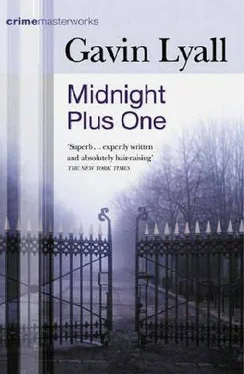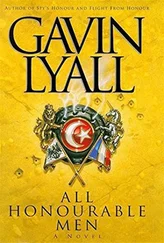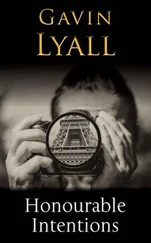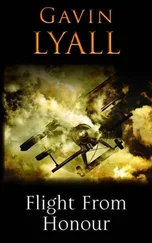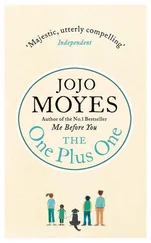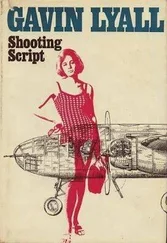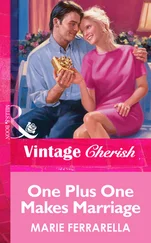Gunfire singed my face and battered in my ears. I lay flat, trying to work out if I were dead.
Harvey said: 'Davey Crockett, I presume? Welcome to the Alamo. I was hoping you'd come along and tempt him out of cover.'
'Any time. ' I started unwrapping myself from the bushes. A few yards over to my right, a man. was lying half out of the bramble patch. Harvey walked across to him. He walked stiffly, and then I saw a stained rip in his jacket over his left ribs. I yanked myself free and went after him.
'Are you hurt bad?'
'Not serious.' His face was set hard as he tried to lift the man with his foot. He let him fall back, convinced he was dead.
'I'd been stuck in cover about twenty minutes waiting for him to make a move. What's the news?'
'Let me have a look.' I started tearing open the bloodstained hole in his shirt. 'The news is we're being picked up, but the cops have got a roadblock in the village. They heard the shooting and they're out in the fields.' I nodded over my shoulder. 'It's just a gash – but you'll have to run with it Can you?'
He nodded.
I said: Then go round the village and up to the road.'
Maganhard came up behind us, carrying my Mauser as delicately as he would a dead rat. I took it off him.
Harvey said to him: 'Liechtenstein's now that way ' He pointed to the stream. 'Get the luggage and run.'
Maganhard said: 'I do not mind about the luggage-'
'Imind,' I said. 'It's evidence of who was here.'
Maganhard went to fetch it. Harvey called after him: 'Remember – the business you save may be your own.' Then he looked at the dead man. 'Though he's a good piece of evidence himself. They won't think he committed suicide.'
A voice from the field shouted:'Ai! Allons-y?'
I said: 'I may be able to fool them a bit. Stay across the stream and away from the bank: they'll look for tracks there. Anddon't come back for me, whatever you hear.'
He crooked an eyebrow at me: 'You aren't going to be the boy on the burning deck, are you?'
Maganhard went trundling past, carrying the two cases. I said: 'I'll be along.'
He turned away, then back. 'It's the first time I've ever been hit,' he said thoughtfully. 'He came up behind me; got me by surprise.'
'I'd assumedthat, for God's sake.'
He didn't seem to hear me. 'But it's not an excuse really. People shouldn't get up behind me and take me by surprise. My job.' Then he loped off down the track, his left elbow pressed tight into his ribs, his Air France suitcase in his hand.
I took a deep breath that was only partly because of the running and jumping I'd been doing recently, found the Mauser holster, and clipped it on as a shoulder-piece. Then I walked over to the dead man.
He was a smallish man with long dark hair, wearing a shabby grey double-breasted suit. Hus gun was a US Army Colt.45 automatic. I put it in a pocket, picked him up, and staggered through the wood towards the fields.
Near the last of the trees I put him carefully down again, got out his gun, broke out the magazine, and counted the rounds. There were too many for what I planned; I left him just three. Then I sneaked forward to the edge of the field.
One of the cops was standing in plain view about a hundred yards away, up to the middle of his thighs in long grass, and staring hard at the trees. I couldn't see the other. I pulled back and went on hands and knees to the road I needed to account for the four earlier shots – and a dead man. I tucked the Mauser into my shoulder and fired two careful shots at the nearest house in the village, a quarter of a mile off. I saw a cloud of dust fall off the wall. Now the cops down there knew they'd been fired at; maybe they'd believe some of the earlier shots had been aimed at them, too.
I crept back to the dead man. The cop was still in the middle of the field, staying out of what he thought was accurate pistol range. With the Mauser and its shoulder-piece, I could have plucked his eyebrows at that range. Well, that was about what I wanted to do. But I would have preferred to know where his partner was.
I propped myself carefully behind a tree, and shouted at him. I told him to come on if he felt brave enough. Gendarmes had killed my father and brother. Now let him try and kill me. I was going to take one with me when I went.
I tried to make it sound crazy; an impression of craziness might help fog up some awkward details. He had half ducked when I started shouting, but stayed in view. I put a shot close enough to his head for him to know I meant him. He threw himself flat.
His partner knelt up suddenly from the grass near him and loosed off his sub-machine-gun in my direction. Sprigs of fir and cones spattered down on my head. That was good enough for me. I let out a long dying scream, ending in a nasty little choked gurgle.
Then I threw the empty Mauser cartridge case into the field, patted the dead man on the shoulder, said: 'That'll teach you to shoot at cops,' grabbed my briefcase, and ran.
I caught up with them just where they were about to re-cross the stream and get to the road. By there, my run had turned into a gentle trot.
Harvey gave me a bleak little smile and said: 'I like the idea, but d'you think it'll fool them for long?' He must have heard all my little performance.
'Long enough, maybe.'
'Sooner or later they'll find the guy got hit by a thirty-eight, not one of their machine-guns.'
'They won't rush a post-mortem on him if they think they already know what happened.'
We splashed across the stream and up into the cover of the wall leading to the road. I looked at my watch and made it just over half an hour since I'd left Miss Jarman. My feet were beginning to remind me that I'd got them wet four times since then. We stumbled on.
Parked in the gateway at the top of the field was a grey Citroen van with corrugated sides and clos pinel painted across its rear doors. Miss Jarman and somebody else were kneeling by the front wheels, pretending to be interested in the tyres.
As we staggered up, blowing like a herd of tired horses, the other person stood up and came quickly to the back of the van. It was Ginette, in a neat grey skirt and a smudged old suède jacket.
And older than when I'd last seen her, twelve years ago -but not twelve years older. Perhaps a gentle weariness in her dark eyes, a slowness and steadiness in her expression. But the same dark-chestnut hair, the soft pale skin that never seemed to be touched by the sun, the same sad amused smile I'd remembered far too well.
She touched my arm. 'Hello, Louis. You haven't changed a bit.'
My legs were soaked to the knees, my jacket and shirt were covered in mould and pine-needles, half my hair was dangling in my face, and half the forest was in my hair. And I had the big Mauser in my hand.
I nodded. 'Maybe I should have.' We started climbing into the back of the van.
When the doors opened again, we were on the gravel driveway just in front of the Château.
It was the sort of château that looks like one – to an Englishman. Probably that was why one of the earlier Comtes had built it that way: he wanted something that would make a good picture on his wine labels.
It didn't belong to this part of the country; he'd pinched the idea from up on the Loire. It was a solid piece of fake Gothic, with tall windows and a round tower at each side, with peaked witch's-hat roofs of blue slate that jarred with the warm pink southern stone of the house itself. But that wouldn't show on the neat engraving on the labels, of course.
By now the others had climbed out. I turned to Ginette. 'I don't know if you want any introductions…'
She was looking curiously at Maganhard. 'I think I'd better know,' she said.
I said: 'Mr Maganhard – Ginette, Comtesse de Maris.' Her eyebrows lifted just a fraction at his name. He took her hand, came to attention, and bowed slightly.
Читать дальше
